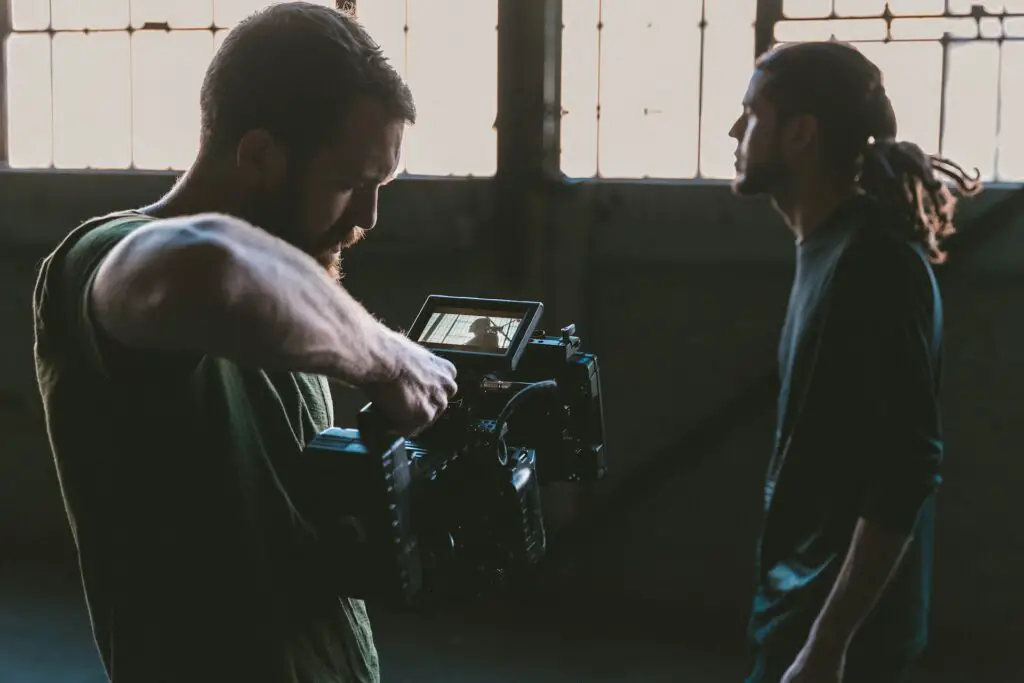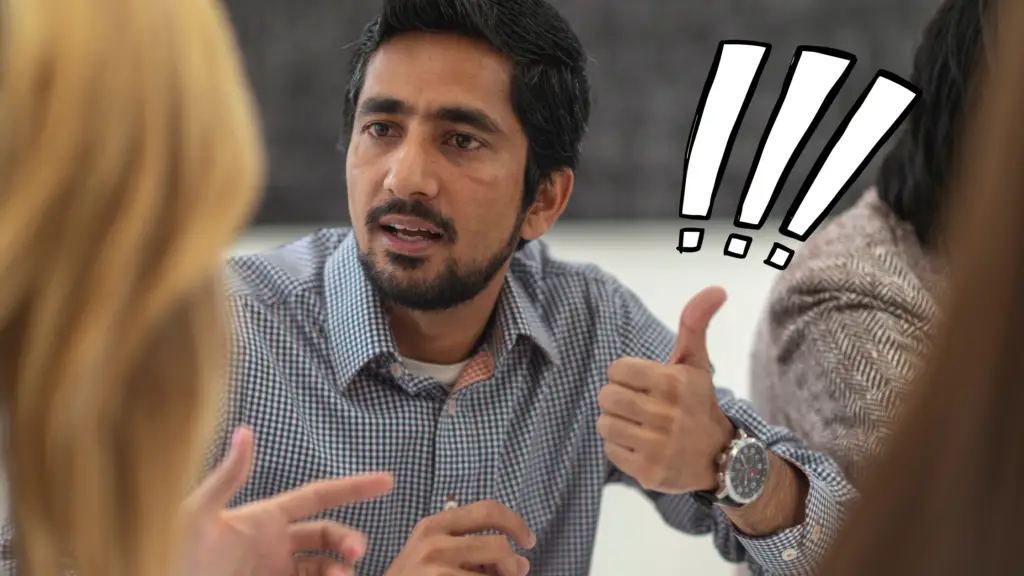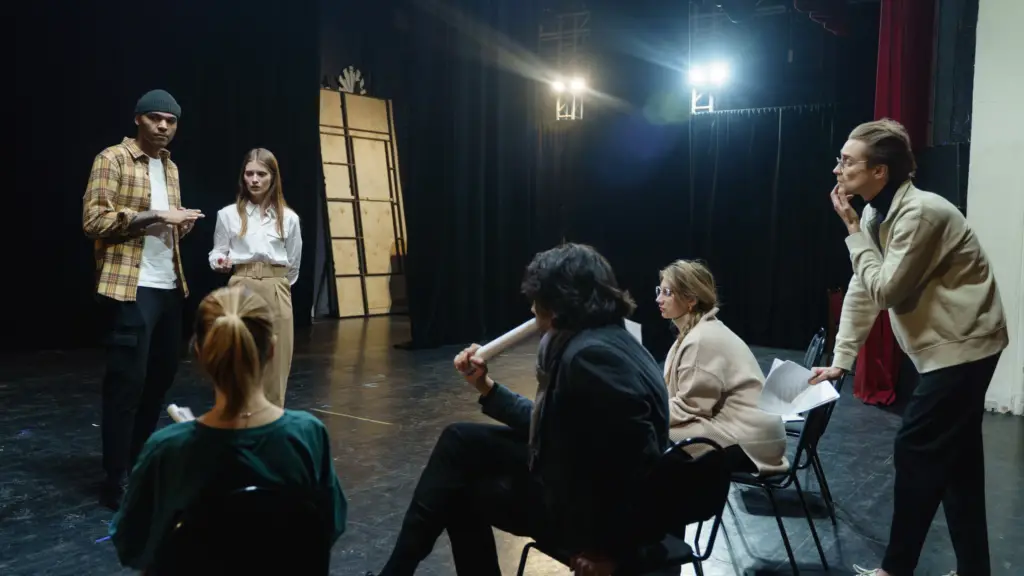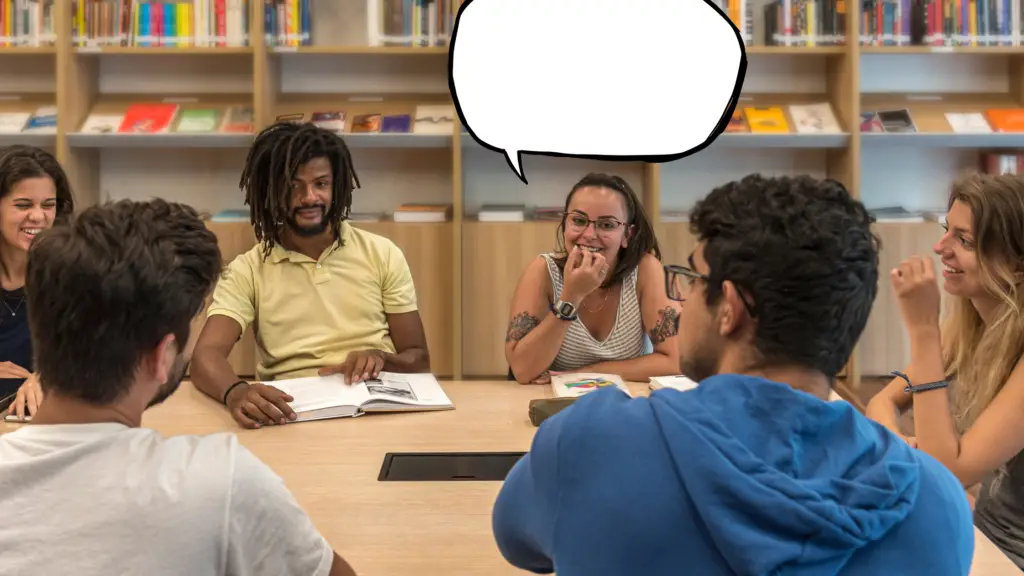Public speaking is a critical skill that can benefit both your personal and professional life.
Hobbies that involve public speaking can also improve your confidence, social skills and vocabulary!
Whether you are giving a presentation at work, hosting a meeting, or making a speech at a social event, the ability to communicate effectively in front of a group is essential.
While some people may be naturally confident speakers, others may struggle with nervousness or a lack of confidence.
Fortunately, there are many hobbies that can help improve your public speaking skills.
By participating in activities that involve public speaking or performance, you can gain valuable practice and feedback, as well as develop your confidence and delivery.
In the following sections, we will explore several hobbies that can help you improve your public speaking skills. Whether you are a beginner or an experienced speaker, these activities can help you take your communication abilities to the next level.
Acting

Acting can be a great hobby for improving your public speaking skills, as it involves performing in front of an audience and using your voice and body to convey meaning and emotion.
One of the key benefits of acting is that it can help you improve your confidence and stage presence.
When you are on stage, you are the focus of attention, and this can be intimidating for some people. However, as you gain experience performing, you will become more comfortable and confident in front of an audience.
In addition to improving confidence, acting can also help you work on vocal projection and diction.
When you are on stage, it is important to be heard and understood by the entire audience, and this requires strong vocal skills. By practicing monologues and scenes, you can improve your ability to project your voice and enunciate clearly.
There are many ways to get involved in acting as a hobby, depending on your interests and location. Some options include:
- Joining a local theater group: Many communities have amateur theater groups that put on plays and musicals. These groups are often always looking for new members, and you can audition for a role or get involved behind the scenes.
- Taking acting classes: Many schools, community centers, and private studios offer acting classes for all levels of experience. These classes can be a great way to learn the fundamentals of acting and get some practice in front of an audience.
- Participating in community theater: Community theater is a great way to get involved in acting without a huge time commitment. Many community theaters put on one or two productions per year and hold open auditions.
- Starting your own theater group: If there isn’t a theater group in your community, you could consider starting your own. This can be a fun and rewarding way to get involved in acting, and you can build a supportive community of fellow actors.
No matter what approach you take, the important thing is to get started and have fun!
Debate

Debate is another hobby that can help improve your public speaking skills. When you participate in a debate, you are required to think on your feet, present a clear and well-reasoned argument, and respond to the points made by your opponent.
One of the key benefits of debate is that it helps you practice quick thinking and impromptu speaking.
In a debate, you may be asked to respond to unexpected prompts or arguments, and you need to be able to think quickly and articulate your thoughts clearly.
In addition to quick thinking, debate can also help you develop strong argumentation skills.
When you participate in a debate, you need to present a well-supported argument and anticipate counterarguments. This requires you to research your topic thoroughly and organize your thoughts in a logical way.
All of these skills can be valuable when giving a presentation or making a speech.
There are several ways you can practice debate as a hobby:
- Join a local debate club: Many communities have debate clubs that meet regularly to practice and compete in debates. These clubs are a great way to get started in debate and learn from more experienced debaters.
- Enroll in a debate class: Some schools and community centers offer debate classes for people of all ages. These classes can be a great way to learn the fundamentals of debate and get some structured practice.
- Participate in online debate forums: If you don’t have access to a local debate club, you can still practice your skills online. There are many forums and websites where people can engage in debates on a variety of topics.
Stand-Up Comedy

Stand-up comedy is another hobby that can help improve your public speaking skills.
When you perform stand-up comedy, you are responsible for entertaining an audience and telling jokes or stories in a funny and engaging way, while maintaining a connection.
One of the key benefits of stand-up comedy is that it helps you think on your feet and handle improvisation.
When you perform stand-up, you may have to deal with unexpected situations, such as a joke falling flat or a heckler interrupting your set. This is a great way to improve your emotional intelligence and ability to “read the room“.
By practicing stand-up comedy, you can learn to roll with the punches and think quickly on your feet and adapt to conditions while communicating effectively.
In addition to quick thinking, stand-up comedy can also help you build delivery skills and craft a strong stage presence.
By continually practicing stand-up comedy, you can learn how to deliver your material with confidence, timing and entertainment.
Singing

Singing is another hobby that can help improve your public speaking skills, as it involves performing in front of an audience and using your voice to convey emotion and meaning.
One of the key benefits of singing is that it can help you improve your breath control and projection.
When you sing, you need to control your breath and use it to support your voice. This can be a valuable skill in any public speaking situation, as it allows you to speak clearly and with confidence.
In addition to breath control, singing can also help you develop stage presence, audience engagement and confidence.
When you perform a song, you need to connect with the audience and convey the emotion of the music. By practicing singing, you can learn how to engage an audience and command attention.
Checking out your local open mic night is a great way to get started. Typically open mic nights offer a few minute sets for you to get started as well as mostly supportive crowds. Find an open mic night in your areas by visiting openmikes.org.
Improv Theater

Improv theater, also known as improvisation, is a form of live theater in which the actors create scenes and dialog on the spot, without a script.
This can be a great hobby for improving your public speaking skills, as it requires quick thinking, strong communication skills, and the ability to react to unexpected prompts.
One of the key benefits of improv theater is that it helps you practice quick thinking and reacting to unexpected prompts.
In an improv scene, you may be asked to play a character or respond to a suggestion from the audience, and you need to be able to think on your feet and come up with ideas quickly.
This can be a valuable skill in any public speaking situation, where you may be asked to respond to questions or deal with unexpected challenges.
In addition to quick thinking, improv theater can also help you develop strong stage presence and audience engagement.
When you perform in an improv show, you need to be fully present in the moment and connect with the audience. By practicing improv, you can learn how to hold an audience’s attention and engage them in the scene.
Hosting a Podcast or YouTube Channel

Hosting a Podcast or YouTube channel can be a great hobby for improving your public speaking skills, as it involves speaking to an audience on a regular basis and engaging them through the use of your voice and personality.
One of the key benefits of hosting a podcast or YouTube channel is that it allows you to improve your delivery and speaking style.
When you speak on a podcast or YouTube channel, you need to be clear, engaging, and authentic. By hosting your own show, you can get practice speaking to an audience and refining your style.
In addition to delivery, hosting a podcast or YouTube channel also requires you to develop and maintain audience engagement.
When you speak on a show, you need to hold your audience’s attention and keep them interested in what you are saying. By hosting your own show, you can learn how to engage an audience and keep them coming back for more.
There are many podcast hosting platforms to choose from, and the best one for you will depend on your specific needs and preferences.
Some popular podcast hosting options include:
- Anchor.fm: Anchor.fm by Spotify, is a free platform that makes it easy to create, distribute, and monetize your podcast. It offers a variety of tools for recording, editing, and publishing your show, as well as options for monetization through sponsorships and listener support.
- Buzzsprout: Buzzsprout is a popular platform that offers a range of tools for hosting, promoting, and analyzing your podcast. It offers a free plan with limited features, as well as paid plans with additional features such as advanced analytics and marketing tools.
There are many other podcast hosting platforms to choose from, and the best one for you will depend on your specific needs and goals.
It’s a good idea to do some research and try out a few different platforms to see which one works best for you.
Check out our full post on starting a podcast to learn everything you need to know to get started!
Public Speaking Courses or Clubs

Public speaking courses or clubs can be a great way to get structured practice and feedback on your public speaking skills.
These programs are often led by experienced public speakers or trainers and offer a supportive environment for giving presentations and speeches.
One of the key benefits of public speaking courses or clubs is that they provide structured practice and feedback on your skills.
By participating in these programs, you can get guidance on how to improve your delivery, body language, and overall performance.
In addition to practice and feedback, public speaking courses and clubs can also provide a supportive environment for giving presentations and speeches.
When you are first starting out, it can be intimidating to speak in front of a group, but these programs offer a safe and supportive space to practice and build your confidence.
There are many public speaking courses and clubs available, and you can find one that fits your needs and schedule. Some options include:
- Toastmasters: Toastmasters is a worldwide organization that offers public speaking courses and clubs for people of all levels of experience. It has a structured program with feedback and support from experienced members.
- Courses at schools or community centers: Many schools and community centers offer public speaking courses or workshops that can help you improve your skills. These programs are often led by experienced trainers and offer a structured approach to learning.
- Private coaching: If you prefer a more personalized approach, you can consider hiring a private coach or tutor to help you improve your public speaking skills. Private coaching can be a great way to get one-on-one attention and tailored feedback.
No matter what approach you take, the important thing is to find a program that fits your needs and goals and take advantage of the opportunity to practice and improve your public speaking skills.
Looking for a great public speaking course online? Check out this highly-rated course from Communication Professor, Alex Lyon “Public Speaking: Confident Delivery Skills” available over at Skillshare.
In Conclusion
As you can see, there are many hobbies that can help improve your public speaking skills.
From acting and debate to singing and hosting a podcast, these activities offer opportunities to practice and develop your communication abilities in a supportive and enjoyable environment.

It’s important to find a hobby that aligns with your goals for improving your public speaking skills and fits your interests and schedule.
Whether you are a beginner or an experienced speaker, there are activities that can help you take your skills to the next level.
The benefits of incorporating public speaking practice into your leisure activities go beyond just improving your skills.
Participating in hobbies that involve public speaking can also be fun, social, and rewarding, and can help you build confidence and self-esteem.





